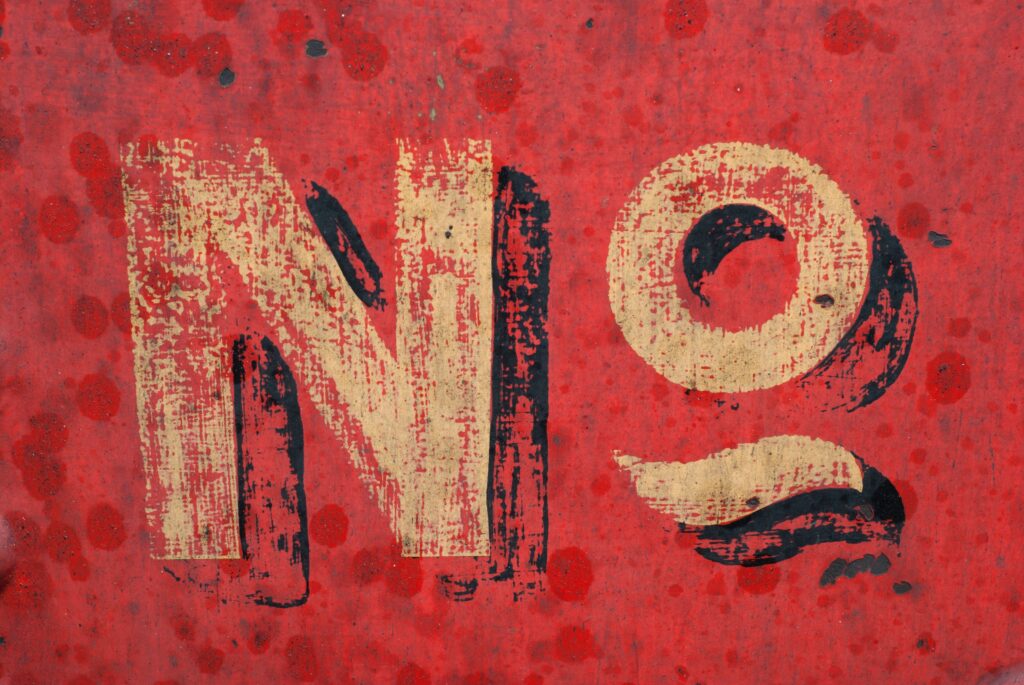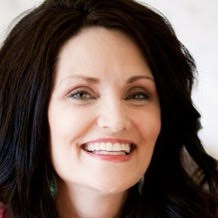Updated April, 2025
( Please note- The following focuses explicitly on the experience of daughters parented by mothers with untreated BPD. Not every symptom will affect every daughter, and certainly not to the same degree. My observations are based on 35 years of clinical practice and current documented scientific research – see sources. It is not my intention to discount the efforts of mothers who have suffered from BPD and are trying their best. Personality disorders are not moral failings. They are more times than not…. a response to trauma. Awareness is the antidote to stopping the cycles of trauma passed down from mother to daughter.)
For most children, Mom is a safe home base.
She is the lap you come home to—and the lap you push off from. In the developmental dance from dependence to independence, a daughter needs Mom as a solid base of support—a mature version of what she hopes to become.
Ideally, Mom is the one who can make it all better when the world gets too scary.
But what if your mother has a borderline personality disorder and ( at times) is the scary one?
What if, instead of being a port in the storm… what if Mom is the storm?
What if mom is raging, out of control, self-destructive… and unpredictable?
Where do you go? What do you do?
In those moments when you were a child, scared, hurting, and alone… you might have turned to Mom, and your BPD Mother couldn’t help you.
If she had no help for the storm raging inside of herself, she couldn’t help you. Caught in a raging sea of emotion, she might have pulled far away from you into her world, leaving you all alone.
OR… sensing you wanted closeness, your BPD Mom might have drawn you in close, perhaps too close.
While this might have felt good initially, you soon realized the closeness was to stabilize and reassure her, not you. As a result, you might have thought it was not comforting but instead demanding, clingy, and desperate.
If this was true for you, you couldn’t break away without bringing on her upset.
And like a drowning person, if she felt terrified of abandonment herself, she might have clung to you as if her emotional life depended on it –
SUFFOCATING. OVERWHELMING. OPPRESSIVE.
You might have worried that you would go under with her.
At other times, you might have been left to witness Mom’s churning, frantic attempts to fill her unbearable emptiness with men, alcohol, drugs, or drama. Either you were collateral damage to the drama or the focus of her drama.
SO.MUCH.DRAMA.
Either way, living in the emotionally upside-down world as a child with a BPD mother might leave you with emotional wounds that don’t necessarily go away just because you’ve gotten older.
If so, without intervention, this relationship template from childhood can stay with you for a lifetime.
A Mother with untreated BPD, otherwise known as a mother with Borderline Personality Disorder, will most likely have trouble adequately meeting the demands of parenting. Without treatment, her disorder can threaten to deplete her of the stability, resilience, and maturity to be the central support every child needs.
And daughters, especially the attuned, sensitive daughter, are at risk of taking on the role of the good daughter.- working to make sure Mom is okay and okay with her.
Now, let’s turn to the characteristics of an (untreated) BPD mother that most often impacts her child.
Caveat- (Some mothers with BPD get treatment and can parent effectively) It doesn’t mean they love their children any less or they can’t get better. However, to break the cycle, a daughter needs to become aware of the effect BPD has had on her so that she can heal.
In general, the BPD Mother has primitive defenses or psychological coping mechanisms.
And…
Children, by definition, have primitive psychological defenses. Thus, being dependent on someone who has power over you and not having the maturity to go with that power can be terrifying for a child. In response to this challenging situation, children frequently suppress their needs for the sake of the needy parent. This is clearly to the child’s detriment.
Here are some traits of the BPD mother that can have a substantial impact on her daughter
Mom’s
- Fear of abandonment– If Mom doesn’t have reliable, consistent caregivers at pivotal times in her development, she can be stuck on hyper-alert for signs a person close to them will leave them.
- Instability and volatility– because she has a combination of sensitivity and vulnerability, the BPD mother may never have had the chance to develop a stable sense of self. A child needs a parent to be consistent and predictable for them to feel secure.
- Chronic sense of emptiness- lacking a reliable understanding of core self, a BPD mother can turn to self-destructive impulsive activities to fill the void.
- Tendency to idealize and vilify others– through a process called splitting, a mother with BPD experiences people and in extremes -as all good or all bad. Thus, her relationships frequently go into a state of turmoil. She prematurely idealizes people and then devalues them when they disappoint her- and they ALWAYS disappoint her.
7 Ways Your BPD Mother Might Have Impacted You
1. When you have a Borderline mom –you can find yourself walking on eggshells.
” I never know when Mom will lose it and… over what. I end up walking on eggshells around her.”
Here is how this happens-
Never knowing when her BPD Mother will get triggered and freak out (often without warning), her daughter learns to tiptoe around Mom, suppressing her own needs to avoid upsetting Mom. She tries to be good for Mom, a Good Daughter.
2. When you have a Borderline Mom – you can have trouble trusting your judgment.
“When it comes to making decisions, I’m always second-guessing myself. I can’t trust I’ll make the right decisions regarding relationships.”
Here is how this happens-
In early life, we look to our mothers to mirror our effect on them. Depending on our experience, we form an attachment template that we then extrapolate onto other significant relationships. In other words, we expect all close relationships to work similarly.
When Mom experiences you as her heroine one minute and the villain the next, you can’t trust that you have a good handle on what to expect from others. And given your experience, how could you?

You have trouble trusting your judgment when you have a BPD mother.
3. When you have a Borderline Mom- you can keep waiting for the other shoe to drop.
” I can’t let down my guard and relax. I’m always waiting for the other shoe to drop…..because, in my experience, it usually does.”
A lifetime of experiencing Mom’s unpredictable moods can train her daughter to be on constant high alert. In her experience, things go south, and they go south at the drop of a hat.
You figure it’s better to expect it… than to be taken by surprise. If you anticipate everything going sour, you won’t be taken by surprise when it does.

Waiting for the other shoe to drop if you have a BPD mother
4. When you have a Borderline Mom –you feel a chronic sense of guilt.
“I always feel like everything is my fault even when I know it isn’t. I’m terrified to disappoint anyone for any reason.”
Daughters of BPD mothers frequently internalize the belief that they are solely responsible for their Mother’s happiness. Living with a BPD Mother can train her daughter to attend to everyone else’s needs rather than her own.
Thus, she feels guilty when she attends to her own life.

Feeling guilty when you have a BPD mother.
5. With the BPD Mom- you can’t say “No.”
You would think I’ve committed a federal crime by how Mom reacts… if I tell her, “No.” I can’t even consider it.”
Because many BPD mothers can smell (or think they can) rejections a country mile away, she can become easily triggered. Thus, her daughter may be afraid to refuse her mother anything for fear of the fallout.
They will say, It’s just not worth it.”
6. With the BPD Mom- you have trouble setting and sticking to boundaries.
” Setting a boundary makes me feel like I’ve broken a rule I didn’t know was there.”
Since boundaries are the antidote to enmeshment, even a normal one can set off Mom’s alarm bells. No wonder the daughter of the BPD mother may feel like she’s doing something wrong to set a boundary and is likely to cave at the first sign of pushback.
7. With the BPD Mom- you might wonder if you’re the crazy one.
“I’m not sure what is normal anymore. Life has been such a chaotic roller coaster I think I have permanent vertigo. I just want peace and a normal life. ”
Children look to their caregivers for emotional feedback and need dependable mirroring to navigate their own emotional lives. If they look to their parents for consistent feedback and instead get distorted reflections, they may feel emotionally unsteady themselves.

Wondering if you are the crazy one when you have a BPD mother
Here’s the truth about you and your BPD mother-
You’re not bad, and you’re not crazy. You were (most likely) having an normal reaction to an abnormal situation. You’ve likely done the emotional work of two people to survive. In fact, you’ve probably been doing a high-wire act your entire life-balancing your BPD mother’s ever-changing needs with your own.
You don’t know that you can come down and take a seat. You don’t have to work so hard. It isn’t up to you to keep another person afloat.
Understanding the impact of a BPD mother’s parenting on you is the first step toward recovery. But, of course, you can’t deal effectively with something you don’t understand in the first place- who could? And besides, this personality disorder is one of the trickiest disorders to deal with.
However, you can empower yourself with knowledge and the right plan to deal with it. And the plan involves bringing the center of attention back to yourself. It isn’t easy, but it is doable.
If you need more support on how to deal with your borderline mother without being paralyzed by guilt, see my book The Good Daughter Syndrome®. If what you’ve read so far is helpful, this book has the power to change your life. Read the reviews.
listen-here to the audio version)
First, find out if you are caught in the good daughter trap here.
Sources –
From the NCDI -“In sum, parenting behaviors that have been found to characterize mothers with BPD include insensitive forms of communication, such as critical, intrusive, and frightening comments and behaviors. Additionally, these mothers may be likely to engage in role confusion with their children and may reinforce their children for taking on the role of a parent or friend. Finally, mothers with BPD report experiencing high levels of distress in roles as parents which could lead to abuse out of frustration and hopelessness.”
Stepp, S. D., Whalen, D. J., Pilkonis, P. A., Hipwell, A. E., & Levine, M. D. (2011). Children of Mothers with Borderline Personality Disorder: Identifying Parenting Behaviors as Potential Targets for Intervention. Personality disorders, 3(1), 76. https://doi.org/10.1037/a0023081
“Furthermore, it seems that mothers with BPD may engage in a greater number of negative parenting behaviors, which may increase their offspring’s risk for psychopathology (e.g., Johnson et al., 2006). The combined effects of maternal inconsistency across emotion socialization as well as monitoring, for example, may create an environment invalidating enough to contribute to the development of BPD in the offspring.”
Apter, Terri. (2013). Difficult Mothers: Understanding and Overcoming Their Power New York, N.Y.: W.W. Norton and Company.
Lawson, Christine Ann. (2004). Understanding the Borderline Mother: Helping Her Children Transcend the Intense, Unpredictable, and Volatile Relationship. New York: Rowman& Littlefield Publishers Inc.
Lerner, Harriet. (1985). The Dance of Anger: A Woman’s Guide to Changing the Patterns of Intimate Relationships. New York, N.Y: HarperCollins.
Miller, Alice. (1997). The Drama of the Gifted Child: The Search for the True Self. revised edition
New York, N.Y: Basic Books
Faber, A., & Mazlish, E. (2006). How To Talk So Kids Will Listen & Listen So Kids Will Talk. New York, N.Y.: Scribner
Furman, Erna. (1992). Toddlers and Their Mothers: a study in Early Childhood Development. Madison Connecticut: International Press.
Fraiberg, Selma. (1996). The Magic Years: Understanding and Handling the Problems of Early Childhood. New York, N.Y. Simon and Shuster.
Harris, N. B. (2014).How childhood trauma affects health across a lifetime (16 min video): https://www.ted.com/talks/nadine_burke_harris_how_childhood_trauma_affects_health_across_a_lifetime?language=en
Kaplan, Louise J. (1978). Oneness and Separateness: From Infant to Individual. New York, N. Y. Simon&Schuster.
Mahler, M. Pine, F., Bergman, A. (1975). The Psychological Birth of the Infant: Symbiosis and Individuation, New York, N.Y. Basic Books, Inc.
- A note from research on the treatment of borderline personality disordered mothers https://www.verywellmind.com/borderline-personalities-425472 “At least one study has found that individuals with different presentations of BPD may respond differently to treatment. In this study, individuals from the severely disturbed-internalizing subtype did not see symptom improvement with treatment, whereas those in the anxious-externalizing and withdrawn-internalizing subtypes did.3″
Frequently Asked Questions:
Daughters of BPD mothers have trouble trusting themselves and others, frequently have low self-esteem and struggle with feelings of guilt and anxiety.
Their primary wound is abandonment.
Because of their mother’s fear of abandonment and volatile mood swings, their daughters feel responsible for their mother’s unhappiness.
Her borderline mother’s extreme mood swings and tendency to vilify people who disappoint her make her daughter afraid of setting her mother off.












Explains a lot
Thanks, Jen- I hope it was helpful. I see a lot of women in my psychotherapy practice.. and the effects of being raised by a borderline mother can be troubling to devastating. I’m doing what I can to bring them to light.
Take care,
Katherine
I set a boundary finally with my undiagnosed mother last year after years of her drama, drug use and Muchhausen’s. It was after she disowned my brother for not giving her money (bad child) and then she wanted back in only my life (good daughter). She knew I was pregnant and I told her the only way we could begin communication is if she even attempted therapy. Therapy has been integral to me even just coping. She refused and I never talked to her again. She died yesterday and I’m drowning in sadness. I think I repressed all the good and happy memories we had so I could bear the pain of our relationship that has been on a nose dive the last 15 years since my parents split. Now they’re all coming flooding back. She never met my baby daughter and now never will. I am so broken. I tried my whole life to make her life better and nothing worked. The end of her life was so sad and she died alone and unhappy. I just can’t bear it.
Dearest Jen,
I hear and feel your pain.
I’m glad you have a therapist to unpack all this with but permit me a few thoughts-
Since I can’t know more than you have expressed here- take what fits and disregard the rest.
Of course, there are many memories you may have needed to block to do the hard thing, both for you and your daughter. In time, I hope you can cherish those and hold those close. Particularly with Munchhausen’s and drug use in the picture, when you became pregnant, it was your job to protect your child from harm. It was her choice not to make an attempt at therapy. She must have been too far gone. That is tragic but it doesn’t make it your fault.
I can only imagine the amount of pain her disorders have cost you over your lifetime. If you think about it- contact with her (and her untreated disorders) would most likely have resulted in even more pain.
Here’s a parting thought -which again might be helpful to unpack in time- at the center of BPD is the inability to integrate all aspects of another person. Someone who has BPD splits people into good and bad.
Over time, and with continued work, you now have that opportunity- to do what your mother could not- that is to see her as both good and bad- well and unwell-. You may come to see her as someone who loved you and at the same time was so hampered by her illnesses.
I believe two things can be true at once- you can love your mother with all of your heart and also accept that you can’t change her. No daughter I know has been able to cure her mother of drug addiction or borderline personality disorder. You can, however, make your life a living hell by trying.
May the peace of the God you worship be with you in your time of sorrow. I hope you will continue on your journey of health. Perhaps that is the best way to honor your mother’s legacy.
Take care,
Katherine
Jen…
That’s so heartbreaking. When I saw that you had posted this on the day my Dad died (31/7/2022 – 2 weeks after my kid’s 1st birthday)… I just had to respond.
Im struggling with a mum with bpd myself. I’m so sorry for the regret and grief you’re feeling. After dad died, I had a few weeks of a very strong flooding of childhood memories almost constantly – it was sad and lovely at the same time… I can identify with having that experience after a parent’s passing.
Anyway. All I really wanted to say is that I hope life is treating you well and that you’re currently happy.
Take care
My stepdaughter’s mom is BPD and she is already showing these signs listed. We have her half the time and she is in Elementary school. What can her dad and I do to protect and counteract the damage being done?
Hi Stepmom – Good for you that you are on the lookout for your stepdaughter and would like to offer some counterbalance to what she is experiencing at home.
I imagine it is going to be a long and frustrating road… to help this child because if she is like so many other children, she will cling tightly to the idea that nothing is wrong with her mother and even defend her to her ( the child’s) own detriment.
Therefore most of what you can do that is the least likely to backfire is to sidestep commenting about her mother’s behavior and model a different type of relating.
Steady, predictable, mature… and calm-the port in the storm, and of course, it goes without saying -not drafting her into adult affairs but providing shelter and shield against emotional material that she is too young to handle.
I’m sure you know this already, but it bears repeating. The worst thing you can do is to point out how irresponsibly her mother is behaving lest you drive her to defend her mother. She is already been programmed to do that.
You both can at least give her a place where she doesn’t feel the need to do that- as tempted as you may be.
If you all have the resources- getting her (the daughter) into therapy so she can have another place to air her feelings without repercussions would be ideal.
This will most likely be a long and hard road- one paved with more restraint than action. However, in the long run- she will benefit so very much from having an alternative from which to learn and grow.
I wish you the best,
Katherine
Hi Katherine,
Thank you for putting this information together it has been so helpful and reassuring that there is real understanding about BPD mothers and there effects on a daughter.
I have a daughter who has a diagnosed BPD mother. We separated a good while ago and things have been hard in the past but my partner and I have made a safe and balanced home for my daughter who is seeing her mother albeit for much less time than before but is stuck in a protecting roll and dealing with the ups and downs of her mothers behaviour.
It is such a relief to read about issues me and my partner have been dealing with and that are so hard to convey to other people. It has made me feel much less crazy and has given me great strength. Thank you
Are there any medical reports that you would suggest reading that support your research?
Kindest regards
Ben
Thanks Ben,
I’m glad the article struck a note and might be helpful. Kudos to you and your partner for providing a stable alternative for your daughter. I imagine it might feel like a thankless job at times and hard to convey to others that don’t have a front-row seat to the dynamic.
No doubt your good care of your daughter will yield good results even if it takes a very long time.
As a clinician, I primarily write from my experience with individual clients in psychotherapy. The effects of borderline mothers on their daughters are fairly common and agreed upon in the field. For further reading, I would point you to a couple of books that professionals and lay persons alike use for reference- one such is Understanding the Borderline Mother and Stop Walking on Eggshells. You can easily find both on Amazon.
Best of luck,
Katherine
I cannot believe, that after so long of silent suffering and trying to care for my mother, 16 painful years of believing that She was more important as she needed more help, that I have just read something that is the perfect fit for my experience.
I do love my mum, and she was fantastic when I was a kid, and had never been diagnosed with anything. WhenI was 16, she had a diagnosis of BPD, but actually told us all it was bipolar. I had no idea it was BPD until after she died in October last year.
I sacrificed so much for her over the years, but she had turned to alcoholism in my late teens, and this added significant pressure.
Our relationship became so unstable, that I would end up being the one shouting at her out of pure anger, and I would swear to myself that now was the time to start looking out for myself, yet it wouldn’t be long before she was back in hospital from drinking too much or “accidentally “taking too much medication, and I would be right there by her side, begging doctors to refer her to professionals so she can get the right help.
As I mentioned before, she passed in October, and we still don’t really know how it happened. Since she has been gone, I have felt sad (although I think part of me started grieving for her years ago), but it has had a strange affect on me.
I have always had an amazing group of friends around me, yes over the years some have come, some have gone, and some stay, but I think I am lucky to have all of them. Mum has been gone for a few months, and I am finally starting to realise that saying something about my feelings, always followed by “oh I know I sound pathetic, don’t worry”seems like a funny thing to do. Mum never gave my feelings much thought, and now in the absence of that, it’s getting clearer that actually, there are people that do care about not only me, but my brother who had his own struggles.
I was diagnosed with ADHD in January, which I have had no problems dealing with as I was expecting it to happen after doing some research, however, I was reading another article earlier about the crossovers in ADHD with mental illnesses, and it spoke about similarities between BPD and ADHD, and because my biggest and probably only real fear is turning into my mother it did frighten me.
I knew that I had been having a kind of growth journey in a way, and felt like I had been conditioned to think in certain ways, that I was going to be working on relearning some boundaries, but I started worrying that I had been misdiagnosed, and actually had BPD.
After some googling, I found what you had written, and everything just fits. I know I relate to ADHD more, and I don’t just think I am in denial because of my fear. Not only that, but with this, you have completely validated every emotion I had for nearly 30 years, and I now know it is completely normal for me to be a little out of touch with who I am as a person, and that I deserve to carry on with my growth journey.
Dear Katy -Thank you so much for writing about your experience.
I am so sorry for the loss of your mother and know that you will be unpacking what this means to you for a long time to come.
You deserve to really take an inventory of all that is happened to you and understand how normal your reactions were given what you were dealing with.
In my experience, it isn’t unusual for daughters of mothers struggling with BPD to focus on themselves last.
But now is a good time. I wish you the best of luck on your healing journey.
For more about this dynamic, please check out my book, THe Good Daugther Syndrome I have a feeling you might find many answers there.
Take care, and let me know how it goes,
Katherine
I am that Mother! Reading this and the comments is so hard, I feel so much like a mistake that never should have happened. Its incredibly hard to acknowledge the damage I’ve caused unintentionally. My children know how much I love them and love me very much too. Being BPD is like having your worst day with PMS! You can hear yourself saying shxt but can’t stop. I was damaged goods by the time I was 7 due to mental, physical, sexual abuse and emotional neglect. I was diagnosed with Bipolar 1 after the birth of my first baby but I wasn’t told until I was pregnant with my third and I have only just received a BPD diagnosis at the age of 52! I’m not a bad person, far from it, I did my very best with what I had in me and I came from a place of love for the most part. Acting-out is not deliberate, we’re just wired differently because our parents did such a rubbish job and should never have had children! For those who don’t know, narcissistic disorder is very different but often gets lumped next to BPD. As people with BPD we can empathise and we don’t require constant validation or ego trips – the world does not revolve around us. My children have each flown the nest now and are amazing human beings. They know how life has been a struggle for me and are inspired by my strength and determination to not give-up and my ability to give love when as a child, none was given to me.
Perhaps one day you could write a book for mothers like me?
Dear Arabella,
You sound like an excellent, thoughtful mother, and I’m glad you wrote this.
You have the self-reflection and awareness of how an illness (one you didn’t choose to have… but was the consequence of your own wounding) can affect your children. That doesn’t make you bad; quite the opposite in my book.
Your self-reflection puts you in a position to empathize with your daughters and make the necessary repairs. That is all good.
That is the only way a cycle is broken. It requires one person taking ownership, not excusing, denying, or minimizing the hurt their illness caused.
And, of course, as you point out- you were only reacting to the hurt that was being inflicted on you. It is amazing that you were able to give love you never received.
It takes an awfully strong person to do this kind of work – because it isn’t fair. It is bigger, more powerful than looking at what is and isn’t fair.
The rare mother who does this cycle-breaking is saying to her children, my love for you is more important than my need to be right, excuse, or defend myself. I hear in your words that you are doing this work.
And, in doing so, you help them heal as you heal and – a win, win.
And you are right about another thing. BPD is not the same thing as narcissism. There is a distinct important difference. Rigid inflexible narcissistic defenses can prevent a mother from empathizing with her children.
Research shows that mothers with BPD can in fact, empathize strongly with their children. It is the dysregulation that can interfere with that instinct. But as you said, a lot of folks incorrectly confuse narcissism and borderline or lump them together.
Also there is great variety in borderline traits. They develop primarily as a defense primarily to either real or perceived abandonment. In other words the traits that make up a dx of BPD originate from surviving hurt.
One last point. Perfection in motherhood isn’t the goal in my way of thinking. In fact, perfection is the enemy of good responsive mothering. There is no such thing as a perfect mother, and if there were, it wouldn’t help her children.
Children need a model of what it means to mess up (as all mothers do) and have the humility and stability to make amends.
So from one imperfect mother to another, we can live by the mantra- when we know better, we can do better. And make the necessary amends to our children who suffered when doing what came naturally wasn’t good enough.
You sound like you are doing the work bravely, strongly.. and with love. Don’t ever forget that you have great healing power through your love.
Take care,
Katherine
P.S.- my book is about intergenerational trauma -how gets passed down and what it takes to heal it. It is written from the perspective of the daughter, but then again, we were all at one time, daughters.
Hum I was raised by a borderline. We are survivors.
There are two different types of those raised by BPD’s, people that are compliant (they try to make the situation safe by pleasing others and can’t say no~ the fawning response.
The people / kids who rebel. Well they are different.
The rebellious types are not so much suffering from unworthy low self esteem.. they mistrust yes. They are Avoidant yes,.. we say NO too much.
Rebellious types grow overly strong overly independent. and need to learn softness. The compliant type need to learn strength, they were fawning way too much for approval.
We were the scapegoats of all their dysregulated emotions. I saw
Am I right that you are talking mostly of freezing or fawning?
I fought for 30 years then learned to be present and love. I have zero issues with the no, but insomnia, and hypervigilance.
I just wanted to say not all trauma victims are fawners., or freeze up,.. that is the Good daughter behavior. Half do, half go the other way. I run into many that go the other way,.. and rebel rather than comply. There was no way I was going to fawn after a mother that parentified me. I don’t feel vulnerable, I have chronic on edge feeling. It’s not violent, just angry towards family.
Told her, get therapy, or I will not be in your life. Told her, still love you, but I do not put up with your dumping of all your problems, therapy is normal. Her gaslighting is not.
Ahh except when you have a therapist… that I have for sleep, and she minimizes my CPTSD and anxiety. Time to find a better doctor.